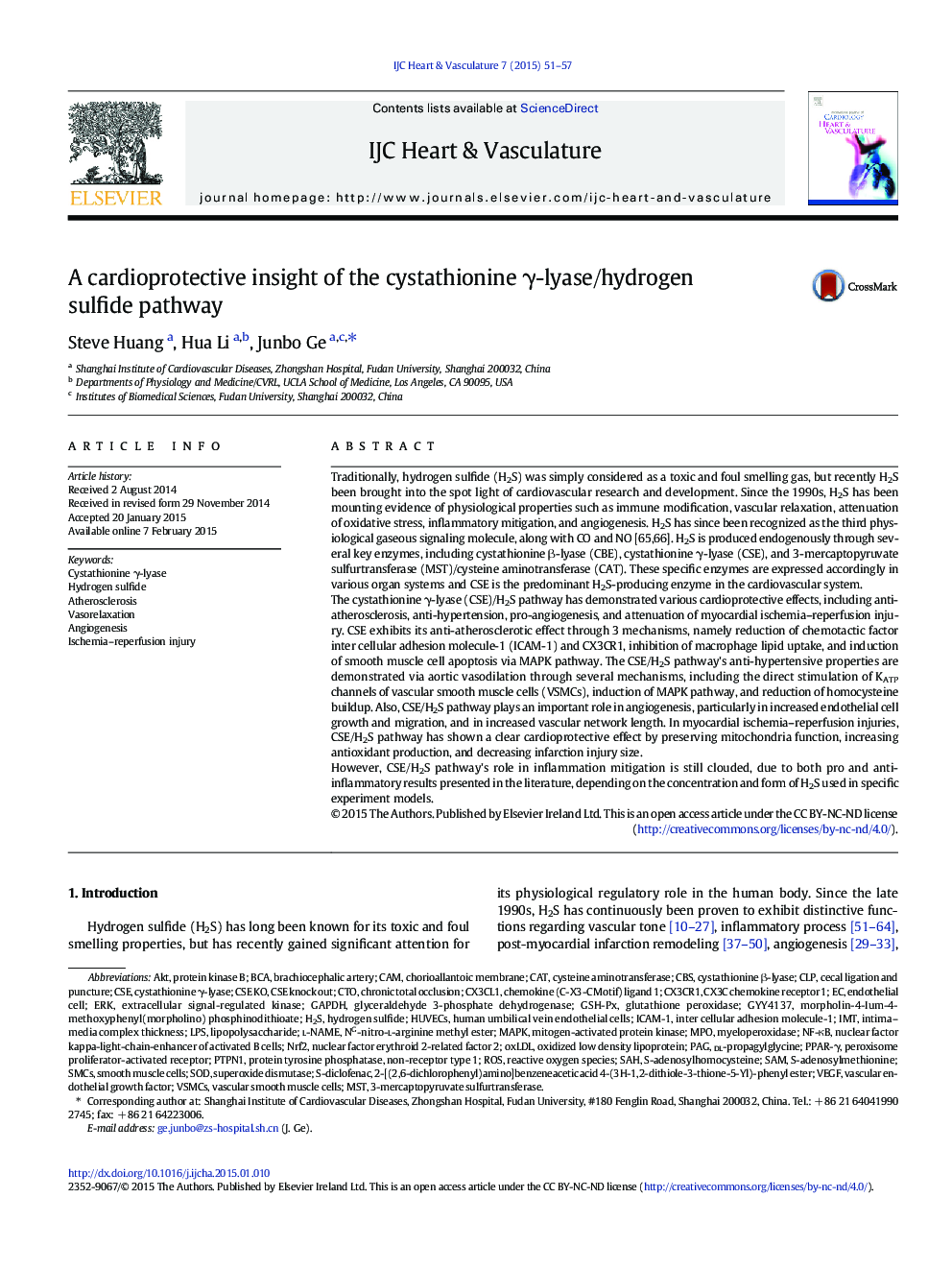| کد مقاله | کد نشریه | سال انتشار | مقاله انگلیسی | نسخه تمام متن |
|---|---|---|---|---|
| 2927023 | 1575814 | 2015 | 7 صفحه PDF | دانلود رایگان |

Traditionally, hydrogen sulfide (H2S) was simply considered as a toxic and foul smelling gas, but recently H2S been brought into the spot light of cardiovascular research and development. Since the 1990s, H2S has been mounting evidence of physiological properties such as immune modification, vascular relaxation, attenuation of oxidative stress, inflammatory mitigation, and angiogenesis. H2S has since been recognized as the third physiological gaseous signaling molecule, along with CO and NO [65,66]. H2S is produced endogenously through several key enzymes, including cystathionine β-lyase (CBE), cystathionine γ-lyase (CSE), and 3-mercaptopyruvate sulfurtransferase (MST)/cysteine aminotransferase (CAT). These specific enzymes are expressed accordingly in various organ systems and CSE is the predominant H2S-producing enzyme in the cardiovascular system.The cystathionine γ-lyase (CSE)/H2S pathway has demonstrated various cardioprotective effects, including anti-atherosclerosis, anti-hypertension, pro-angiogenesis, and attenuation of myocardial ischemia–reperfusion injury. CSE exhibits its anti-atherosclerotic effect through 3 mechanisms, namely reduction of chemotactic factor inter cellular adhesion molecule-1 (ICAM-1) and CX3CR1, inhibition of macrophage lipid uptake, and induction of smooth muscle cell apoptosis via MAPK pathway. The CSE/H2S pathway's anti-hypertensive properties are demonstrated via aortic vasodilation through several mechanisms, including the direct stimulation of KATP channels of vascular smooth muscle cells (VSMCs), induction of MAPK pathway, and reduction of homocysteine buildup. Also, CSE/H2S pathway plays an important role in angiogenesis, particularly in increased endothelial cell growth and migration, and in increased vascular network length. In myocardial ischemia–reperfusion injuries, CSE/H2S pathway has shown a clear cardioprotective effect by preserving mitochondria function, increasing antioxidant production, and decreasing infarction injury size.However, CSE/H2S pathway's role in inflammation mitigation is still clouded, due to both pro and anti-inflammatory results presented in the literature, depending on the concentration and form of H2S used in specific experiment models.
Journal: IJC Heart & Vasculature - Volume 7, 1 June 2015, Pages 51–57